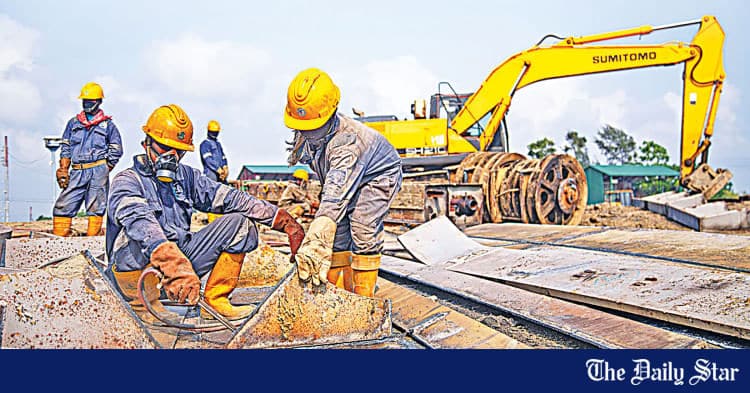Bangladesh’s ship recycling industry at a crossroads
Bangladesh Faces Deadline Dilemma on Ship Recycling Convention

Bangladesh has missed a crucial deadline to implement the Hong Kong International Convention for the Safe and Environmentally Sound Recycling of Ships (HKC 2009), which it ratified in June 2023. With enforcement still pending as of June 2025, experts warn that the country may cite socio-economic challenges as reasons for delays. However, once a country ratifies an international treaty, it is legally bound to uphold its commitments, raising concerns about the implications for the ship recycling industry and environmental safety.
Challenges in Implementation and Compliance
The ship recycling industry in Bangladesh is currently governed by the Ship Breaking and Recycling Rules of 2011 and the Ship Recycling Act of 2018. Under these regulations, the Ship Recycling Board (SRB) is responsible for overseeing operations. However, the SRB is grappling with a significant manpower shortage, which hampers its ability to issue No Objection Certificates (NOCs) and permits for ship dismantling. As a result, these administrative tasks are often managed by the Ship Recycling Wing of the Ministry of Industry. This transitional phase raises concerns about whether Bangladesh has the administrative capacity to enforce regulations effectively as the HKC 2009 deadline approaches.
Shipbreaking yards in Bangladesh have made substantial investments in acquiring vessels for dismantling. Delays in obtaining necessary permits could lead to significant financial losses due to accruing bank interest, jeopardizing the economic viability of the sector. After June 2025, any ship not dismantled in a “green yard” compliant with HKC standards will be prohibited from entering Bangladeshi yards. Currently, only seven yards have achieved green certification, while fifteen others are in the process of upgrading. Most operational yards remain non-compliant, employing thousands of workers and supporting millions in related industries, such as steel manufacturing and furniture production. The potential restriction on ship imports to compliant yards poses a risk to these workers’ livelihoods and could destabilize related sectors.
Environmental and Economic Implications
Without sufficient scrap metal from ship recycling, Bangladesh’s steel industry may face increased pressure to import raw materials, further straining the country’s foreign currency reserves. The global shift in the ship recycling industry from Europe to Asia has been driven by more lenient regulations in the region. If Bangladesh enforces strict rules to comply with the Hong Kong Convention, neighboring countries like Pakistan, India, and the Philippines could capitalize on the situation, potentially diminishing Bangladesh’s market share.
Another pressing issue is the disposal of hazardous waste generated from ship recycling. The Bangladeshi government, with assistance from Japan, is working on a Treatment, Storage, and Disposal Facility (TSDF) to manage hazardous materials safely. However, delays in land acquisition have hindered progress, making it unlikely that the TSDF will be operational by the 2025 enforcement deadline. This uncertainty raises concerns about the safe disposal of hazardous waste.
The Hong Kong Convention has faced criticism for placing the burden of compliance primarily on recycling states rather than ship-owning nations. Recycling countries must establish safe facilities, maintain TSDFs, prepare Ship Recycling Plans (SRPs), and implement strict health and safety standards. In contrast, ship owners often evade responsibility by transferring ships to lesser-known flag states or cash buyers before dismantling, avoiding accountability for the environmental impacts of their vessels. This imbalance raises critical questions about Bangladesh’s readiness to enforce the Hong Kong Convention by the 2025 deadline. Non-compliance could violate international law and undermine the country’s commitment to uphold treaty obligations.
Ship Recycling Needs to Pick Up for Shipping to Lower Emissions
To address these challenges, a coordinated approach is essential. The International Maritime Organization (IMO) should collaborate with recycling countries to develop tailored standards within the Hong Kong Convention framework, considering their socio-economic realities. Many yards struggle to meet the costs imposed by classification societies that certify facilities based on high standards. Adjusting these standards to be both feasible and effective is crucial.
Additionally, the IMO should enhance inspection and monitoring efforts in major recycling countries to assess compliance accurately. Transparent evaluations would help the international community recognize progress and identify gaps, fostering accountability. Technical support should be paired with financial aid to ensure that Bangladesh can implement necessary safety measures and modernize equipment for ship dismantling.
Bangladesh’s ratification of the Hong Kong Convention signifies a commitment to international law. However, fulfilling these commitments requires strong administrative capacity, financial investment, and international cooperation. Timely implementation of the Convention is vital for protecting workers’ health and safety, safeguarding the environment, and maintaining competitiveness in the global ship recycling industry.
